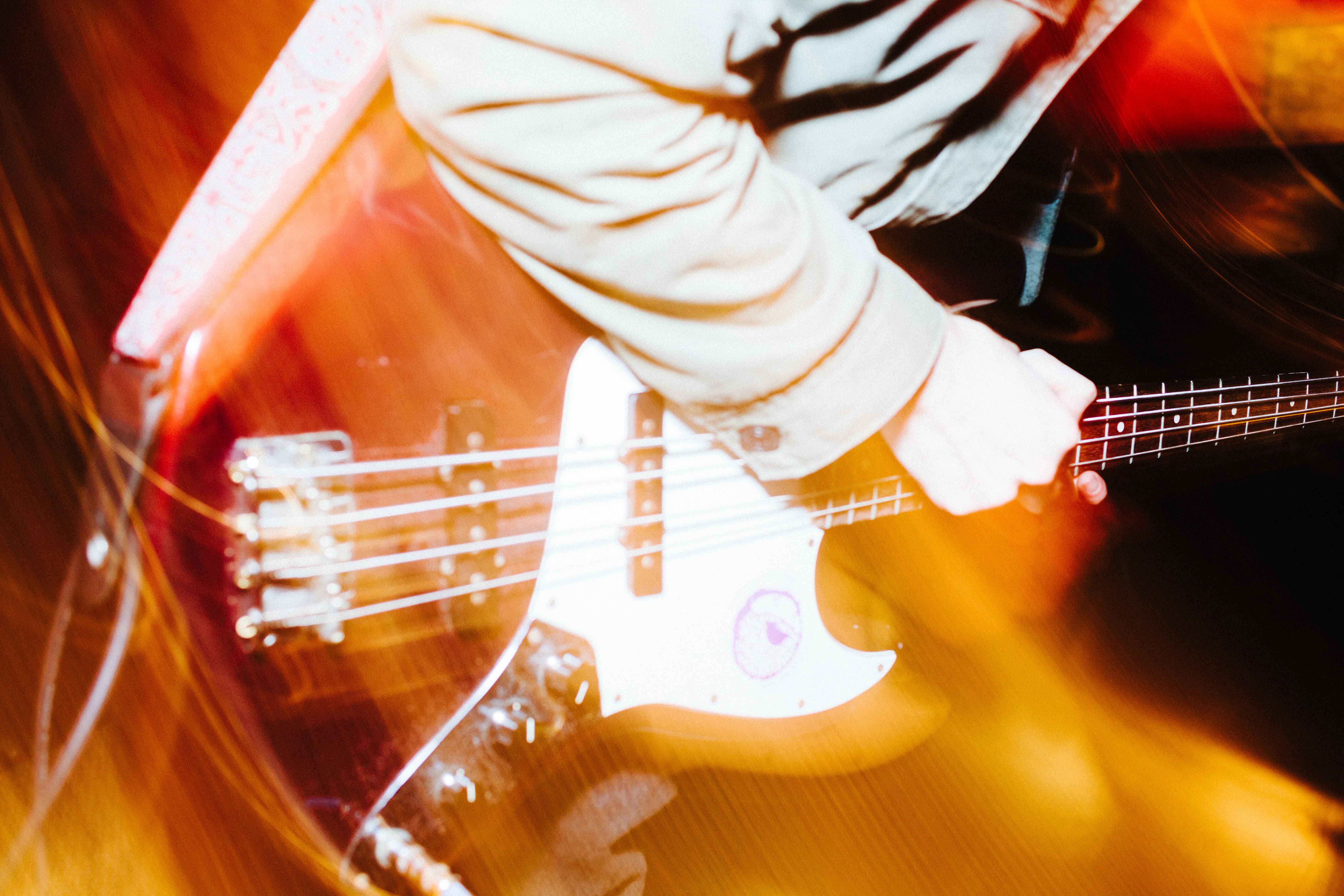Long Beach noise/punk/post-punk/hardcore band Struckout recently released their sophomore LP “What You Deserve.”
The Daily 49er caught up with Daniel Speer, bassist and vocalist, and James Goldmann, trumpeter and drummer, both of whom just happen to be California State University, Long Beach alumni.
How would you guys describe “What You Deserve” to someone who has never heard your music?
Daniel Speer: It’s post-hardcore, noise-rock stuff, in the vein of mewithoutYou, Mclusky, or early Modest Mouse. If I were to be more general, it’s punk music that’s trying to sound as big as it can, and tampering with the genre.
James Goldmann: Noise rock is a good genre to toss us in. [Punk music website] AbsolutePunk said we were “Mclusky with Isaac Brock on vocals.” That’s probably the closest anyone has come to describing our sound.
I read in another interview Daniel said it’s the album he wanted to make since he was 15. Why is that?
DS: Fifteen was the age where the idea that music was something I could do, an art form that I could participate in, solidified in my head. There was a shift from “that’s something that other people do” to “that’s something I want to do.” This album’s the first time I felt like I accomplished what I set out to make. Every album, everything before this either fell apart when I tried to record it, suffered from clumsy songwriting, or both. This is the first album that feels like a real accomplishment.
I noticed that there was more of an emphasis on song craft on this album, and yet you guys have managed to keep a lot of the raw ferocious energy that made “I’d Hate Me Too” so great. How did you strike a balance between those two elements? Was it even a conscious thing?
JG: “I’d Hate Me Too” was, personally, an interesting record in that I barely had any time to prepare for it. I joined the band in February of 2013, and we recorded that album in April. We just needed something out as quickly as possible, and I think that’s really apparent on the record. It’s inconsistent, like we were trying to be a bunch of different bands at the same time.
DS: I can’t listen to “I’d Hate Me Too.” I can’t. I’m flattered that you like it, but I really can’t listen to that album without wanting to turn it off. There are less than a handful of songs that I think are good on it, songs that are really an indicator of what my songwriting can be, but for the most part, listening to that thing frustrates me. I’d just say we honed in on the few things that were good about the first album. The things we wanted to keep, and were worth keeping. It’s not necessarily that the music is more complex, it just knows what it is.
JG: Yeah agreed. It’s pretty rough to me, too. I definitely think that, in some cases, we tried to write better versions of songs off that album. Like “Don’t Do What You Love” feels like a much better “Probably Not.” But songs like “Avoiding Parables” and “Polaroid” stuck around, and we still love playing those songs live.
What are some of your non-musical influences?
DS: Junot Díaz is someone who greatly influenced me, in terms of how to approach writing my lyrics, at least on the handful of songs that we talk about race or gender. He has an interview where he talks about writing about racism, that there’s this line you have to walk where if you just write a piece of media that has characters essentially saying ‘racism is bad because of such and such’ you’re essentially preaching to the choir and creating a parable. It’s dishonest and doesn’t change the opinion of anyone who doesn’t already agree with you. Conversely, if you fail to address systemic oppression in your media, that’s a statement about yourself, your values, and I think, especially if you come from a place of privilege (like myself), a lack of empathy. In terms of that first part especially, when it comes to politics, a lot of punk music is really ham-fisted. To me, when a lot of artists talk about these political topics in their work, it’s almost like that artist is looking for approval among their peers, rather than trying to create any social change. I don’t know. I kind of went on a tangent here. Whoops.
I’m very much a fan of the movie “Ed Wood,” and the person. I like the idea of someone being incredibly passionate, having a concrete and grandiose artistic vision, and then, once that person’s artistic vision is realized, it’s critically and commercially seen as a complete failure. I feel a kinship with the director’s blind optimism and passion.
A lot of the artwork for this album, at least the art made by my girlfriend Sophia Zarders, is inspired by ‘70s advertisements. The bizarre composition of a lot of these ads, the ways the notion of success is portrayed, it’s all stuff that we thought was interesting, and fit with the ideas behind the album. A lot of what the album has to do with is success, failure, and the value of art. That’s all I’ll say about that, you can read more into the lyrics if you want to.
JG: I’m constantly fascinated with intercultural and interpersonal communication, discourse, literacy, things like that. How your world adapts around the environment you grew up in, versus the one you live in now, versus where you will be in 5 years. Analyzing all the influences of everyone who has ever made an impact in your life –your family, teachers, roommates, friends, etc.—and how you have to change yourself when you meet new people, or move into a discourse that you don’t fully understand. I went through that after joining Struckout, moving from the metal scene to the punk scene. The way I talked to people changed. The way I listened to music changed.
How did you guys meet?
JG: [We met at] Parkside Dining Hall in very early 2013. I got promoted and moved from Beachside to there. Daniel worked there too and asked me if I knew any drummers, and at first I said I knew a few people that I could ask, but then I remembered that I played a little in high school and might still be able to. I didn’t have a kit, though, so Marcus (the guitarist on “I’d Hate Me Too”) let me borrow his until I found my old one in the garage. I thought my parents had sold it for the longest time.
DS: Ian, the guitar player on the album, we met after our guitarist that was leaving, Marcus, posted an ad on craigslist. We saw Josue, our current guitar player, play a show we were on with his folk-punk band King Satan. We had a show at Bridgetown DIY in La Puente where the person who had the key to the space never showed up. No one showed up to see us either, so it’s not like it was a huge loss, but it’s still pretty demoralizing to drive for an hour, only to be locked out of a space. I remember liking King Satan, but it wasn’t till a year later that one of our friends told us that Josue played electric guitar as well.
JG: That was a pretty rough night. The other bands drove all the way from Northern California the same day, I think from Fresno, and the dude never showed up or promoted the show at all. I don’t think he works with Bridgetown anymore. I also think that might have been Ian’s first ‘show’ with us, too. Good times.
Jesus Ambrosio [Daily 49er radio producer] wants to know if you’ll play “Television Shows” at your next show? (This question is specifically for Daniel).
DS: Haha, I love Jesus, but nah man. Nah. It ain’t happening. We maybe played that song four times live? It’s great that you like it, but nah man.
JG: I’ve tried to revive that song countless times. That one and “Wayne Coyne.” They’re fun! But it ain’t gonna happen.
On that note, do you have any shows scheduled near Long Beach in the future?
DS: Our next show is on Jan. 9 at Programme Skate and Sound in Fullerton.
Struckout’s new album “What You Deserve” can be purchased on their Bandcamp website or at fine record stores near you.




